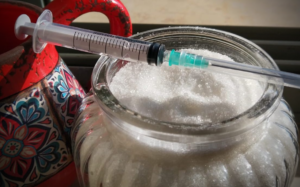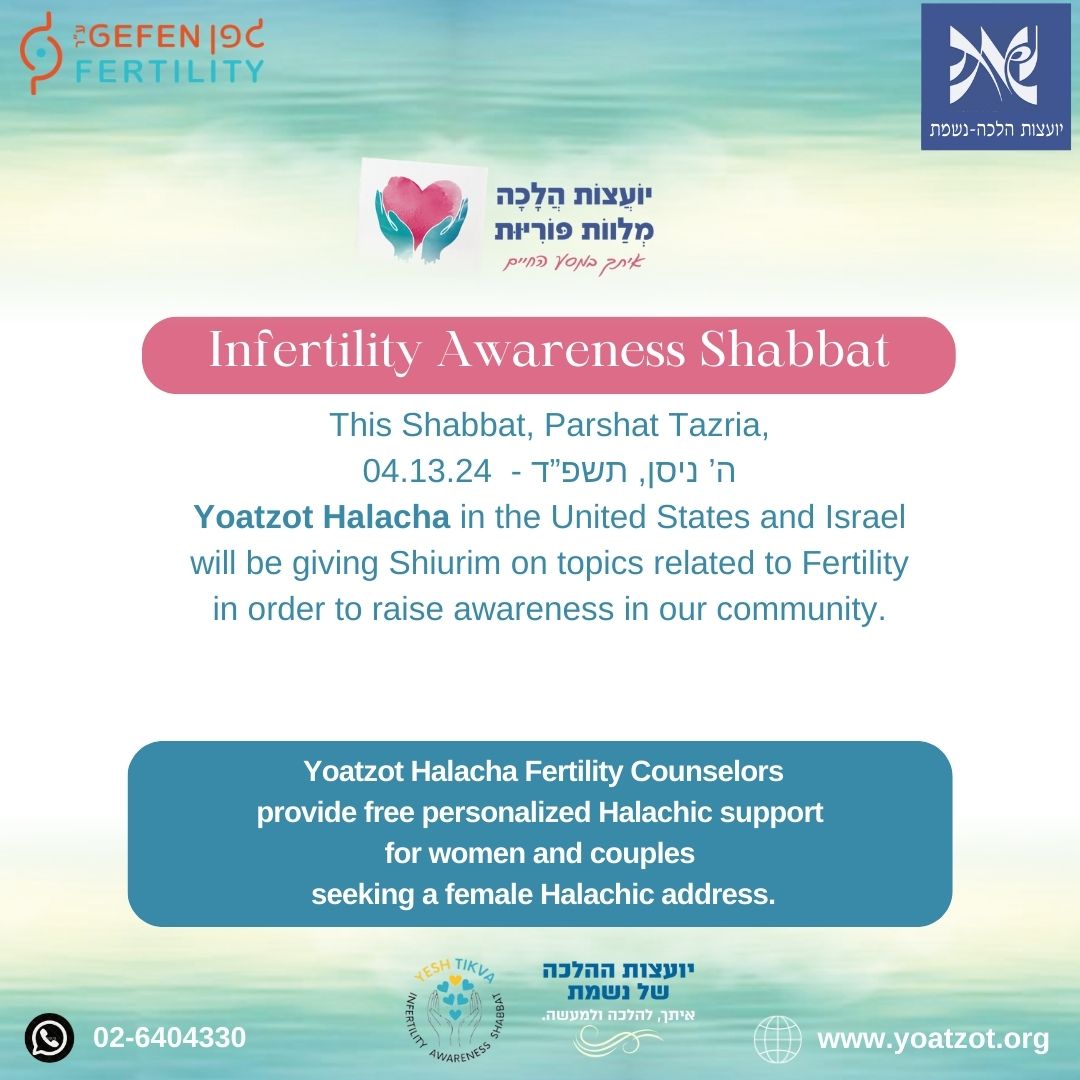 International Diabetes Day is recognized yearly on November 14. In Israel, there are over 430,000 people diagnosed with diabetes and according to medical estimates, there are tens of thousands of people who remain undiagnosed. Living with diabetes (a metabolic disorder characterized by high blood sugar levels), requires a significant change in lifestyle, including dietary changes as well as frequent medical intervention.
International Diabetes Day is recognized yearly on November 14. In Israel, there are over 430,000 people diagnosed with diabetes and according to medical estimates, there are tens of thousands of people who remain undiagnosed. Living with diabetes (a metabolic disorder characterized by high blood sugar levels), requires a significant change in lifestyle, including dietary changes as well as frequent medical intervention.
For religious women who use the Mikveh monthly, being a diabetic, often adds additional emotional challenge. As Yoatzot Halacha, we are an address for the questions posed by women needing to know the halachic implications of their diabetic technology when going to the Mikveh.
Over the years medical technology has steadily developed to improve the health and quality of life of diabetic patients. Currently there are a variety of sensors that continuously monitor blood sugar levels, and pumps that automatically release exact doses of insulin into the blood stream. Both the pump and the sensor are connected to the body through miniscule tubes and are fastened in place with medical tape
- G. recently called a Yoetzet Halacha from her community while at the Mikveh, prior to her immersion. She had a sensor as well as an insulin pump connected to her twenty-four hours a day. On a practical level, there is an essential difference between pumps and sensors. In general, pumps can be easily removed, and refastened, while sensors usually cannot be reconnected and must be discarded after removal. Since the pump’s connection to the body is replaced every few days, and has parts which are cheap, and easily obtainable, therefore, the halachic instruction is to remove the pump before immersion. What about the sensor? In this specific case, the sensor was scheduled to be replaced in a week’s time, and if she were to remove it before her immersion she would be unable to continue using it until the new one would be prescribed. In the meantime, she would be forced to resort back to measuring her blood sugar-levels through regular pricking of her finger. In addition to this being unpleasant, it would also mean that she would be losing out on some of the accurate medical data the sensor regularly recorded. What was M.G. to do? Was the sensor to be defined as a barrier (hatzitzah) which would invalidate her immersion in the Mikveh waters?In order to provide the correct answer, the Yoetzet Halacha had to be familiar with both the relevant halakhic literature, as well as being up to date with the functions and limitations of sensors. This, however, is still not enough. The personalized application of the general Halachic guidelines to the questioners’s particular situation, must take into account her personal situation, as well as the alternatives available to her in order to maintain proper control of her blood sugar-level.In order to achieve the level of expertise necessary to properly understand and deal with such situations, we met with Dr. Rena Pollack an endocrinologist at Hadassah Medical Center – Ein Karem and simultaneously held halachic consultations with the Rabbis of Nishmat.
The Halachic discussion dealt with the relevant theory regarding hatzitzot (barriers) in immersion, as well as the practical applications to various quickly changing situations.
Relying on the professional information provided by Dr. Pollack, as well as the personal details that M. related to the Yoetzet, the Rabbi ruled that she must remove the pump, but could then immerse with the sensor remaining in place. This then led to the next hurdle of conveying the informaton to the Mikveh attendant who had never previously come into contact with a similar situation.
Sometimes, a mikveh attendant’s lack of information regarding the diabetes technology, may create an additional difficulty leading to an uncomfortable situation. If the woman so desires (as was the case here), the Yoetzet can serve as a go-between, directly contacting the mikveh attendant in order to properly explain the full background of the halachic instruction that was given. This additional service can go a long way in order to assist the woman to immerse calmly according to the p’sak she received.
Dealing with diabetes is just one example of how the integrated training in medical information, halachic guidelines and psychological sensitivity, enable Yoatzot Halacha to continue to act as a female address for religious women.
Yoetzet Halacha Michal Roness coordinates Nishmat’s Research Institute as well as the Yoatzot Halacha Fertility Counselors project and answers questions on the Golda Koschitzky Women’s Halachic Hotline (1-877-YOETZET). Yoetzet Halacha Sarit Chen Kroitoro is a research fellow in Nishmat’s Research Institute and answers questions on Nishmat’s Women Health and Halacha Hebrew-language website.















